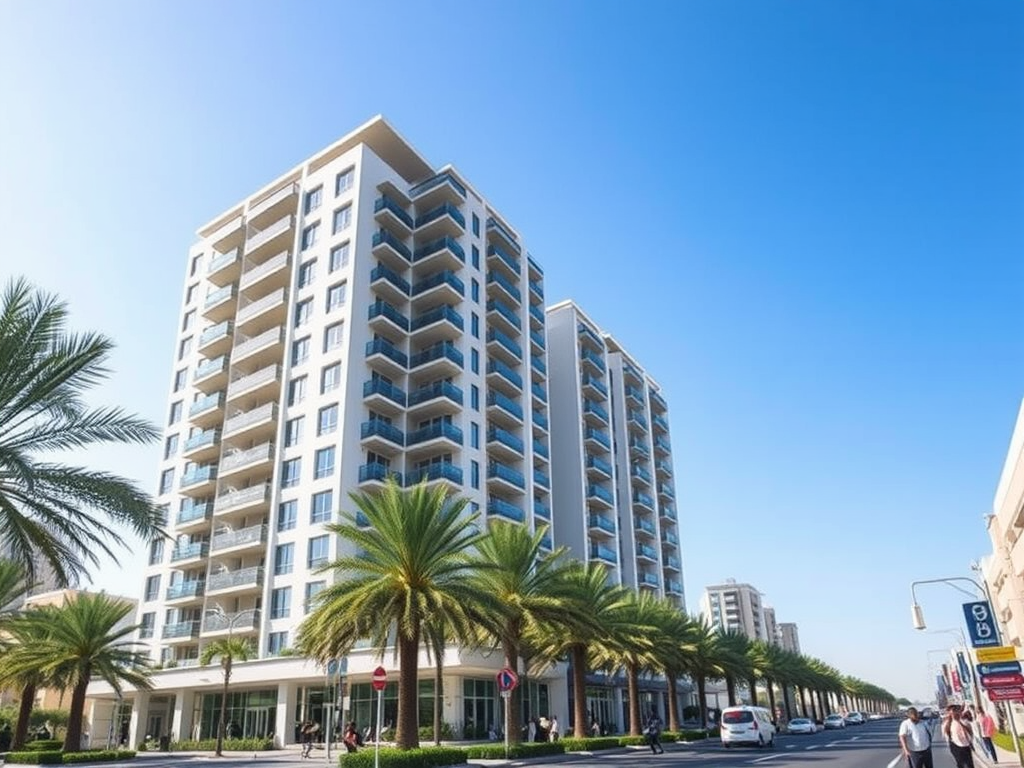
The United Arab Emirates, often regarded as a hub of opportunity in the Middle East, attracts investors from around the globe eager to capitalize on its booming real estate market. As cities like Dubai and Abu Dhabi continue to grow and evolve, the demand for diversified real estate options has surged. However, finding the ideal property can be a daunting task, particularly given the sheer variety of available options. Whether you’re seeking a luxury villa by the sea or a high-rise apartment in a bustling downtown area, understanding the market intricacies can significantly streamline your search. This article delves into expert strategies for identifying the best properties and navigating the nuances of real estate transactions in the UAE. We’ll explore the essential steps to not only find your dream home but also to make a wise investment.
Understanding the UAE Real Estate Market

The UAE real estate market is characterized by its rapid transformation and dynamism, offering a wealth of investment opportunities. Investors must familiarize themselves with market trends and economic indicators that can affect property values. Additionally, understanding the legal framework is crucial for a successful transaction, especially for foreign buyers. With regulations frequently changing, it’s essential to stay updated on the latest laws governing property ownership in the UAE. The demand for properties often fluctuates based on seasonal trends and geopolitical factors, making timely and informed decisions paramount. A comprehensive grasp of these elements will enable you to navigate the complexities of the market more effectively.
- Shifting demands towards sustainable properties and community living.
- Increased interest in technology-integrated homes and smart properties.
- Expanding markets in emerging areas like Sharjah and Ajman.
Defining Your Real Estate Goals

Before searching for property, it’s vital to clarify what you wish to achieve with your real estate investment. Lay out specific goals – whether it’s finding a lavish holiday home, a long-term residence, or a high-yield rental property. This clarity will shape your approach and help tailor your research to find the best UAE real estate for sale. For instance, if your goal is purely investment-driven, prioritizing areas with high rental yields and growth potential becomes crucial. Conversely, if you’re seeking a family home, factors like school districts and community amenities may take precedence. Thus, establishing well-defined goals sets the foundation for a focused and successful property hunt.
- Residential Properties: Apartments and villas suitable for diverse lifestyles.
- Commercial Properties: Excellent for those looking to invest in businesses.
- Off-plan vs. Ready Properties: Consider your timeline and investment strategy when making this choice.
Researching Locations
Choosing the right location is crucial when investing in the UAE real estate market. Each emirate holds unique benefits and attractions, influencing the lifestyle and potential return on investment. For example, Dubai is known for its vibrant lifestyle and is a hotspot for luxury developments, while Abu Dhabi is noted for its family-friendly communities and expansive parks. Additionally, emerging areas such as Sharjah are gaining popularity due to their affordability and potential for future growth. Evaluating these factors will help you identify the most suitable location that aligns with your investment goals.
| Location | Type of Investment | Key Features |
|---|---|---|
| Dubai Marina | Luxury Apartments | Vibrant nightlife, waterfront views |
| Yas Island, Abu Dhabi | Family Homes | Entertainment hub, accessible beaches |
| Sharjah | Affordable Residential | Cultural attractions, family-friendly |
Partnering with Real Estate Experts
Engaging with real estate professionals can significantly enhance your property search. These experts not only have in-depth market knowledge but can also offer valuable insights into neighborhoods, pricing, and investment strategies. When choosing an agent, look for someone with extensive local experience, positive reviews, and a proven track record. Conduct interviews to gauge their understanding of your specific needs and how they intend to assist you. A good agent can provide you with exclusive listings and aid in negotiations, making the purchasing process smoother.
- Experience: Check the agent’s history and successful transactions.
- Local Knowledge: Ensure they are familiar with the areas you’re interested in.
- Reviews: Look for feedback from previous clients to assess their reputation.
Financing Your Real Estate Purchase
Understanding the financial aspect of your investment can streamline the buying process and avoid future hurdles. Financing options can vary significantly, depending on whether you’re a local or foreign buyer. Traditional mortgages are a common choice, but many investors opt for cash purchases to expedite the process. Moreover, there are government programs designed to facilitate property purchases, especially for first-time buyers or expatriates. It’s essential to consider your budget and long-term plans before selecting a financing option.
- Mortgage: Offers lower initial costs but has long-term obligations.
- Cash Purchase: Provides quicker transactions but requires a significant upfront payment.
- Government Programs: Assist foreign investors and local buyers in obtaining property.
Conducting Due Diligence
Performing due diligence is a critical step in securing a successful transaction and protecting your investment. This process involves thoroughly examining the property and all related documents. Start with property inspections and appraisals to ensure that you are making a wise choice. Verifying ownership and ensuring that all paperwork is in order is essential to prevent future legal issues. Furthermore, understanding community regulations and any relevant maintenance fees will help you predict future costs associated with your property. The goal is to cover all bases before the deal is closed.
- Conduct thorough property inspections to check for damages or repairs needed.
- Verify property ownership and check the title deeds.
- Understand community regulations and potential monthly maintenance fees.
Navigating the Buying Process
The process of buying property in the UAE can be swift, requiring you to be well-informed at each stage. Familiarize yourself with the key stages involved in finalizing your purchase. Start by making a formal offer; this can be a game-changer in competitive markets. Following your offer, the agreement details will require careful attention to ensure that all conditions are satisfactory. Closing the deal is the final step and involves transferring funds and acquiring the property legally. Awareness of these stages will help smooth out potential hurdles you might face along the way.
- Making an Offer: Present a clear and competitive offer to the seller.
- Agreement Terms: Ensure all terms and conditions are agreeable.
- Closing the Deal: Finalize financial transactions and legal documentation.
Conclusion
In conclusion, finding the best real estate in the UAE involves a multifaceted approach that requires careful planning and informed decision-making. By clearly defining your goals, studying the market, and partnering with professionals, you can streamline your home-buying experience. Thorough research and understanding of the buying process will further enable you to navigate this diverse market effectively. The UAE offers a wealth of opportunities, and with the right strategies and insights, you can secure a property that not only meets your needs but also serves as a valuable investment.
Frequently Asked Questions
- What are the best areas to invest in UAE real estate? Popular areas include Dubai Marina, Downtown Dubai, and Abu Dhabi’s Yas Island.
- Do I need a UAE residence visa to buy property? No, but certain criteria have to be met for foreign investors, depending on the type of property and location.
- What are the legal requirements for buying property in the UAE? Legal requirements depend on residency status, but generally include a property registration process and adherence to local laws.
- Is financing available for foreign investors? Yes, many banks in the UAE offer financing options tailored for foreign investors, although conditions may vary.
- Are there any hidden costs in purchasing property? Yes, buyers should be aware of costs such as property registration fees, maintenance fees, and agent commissions.


